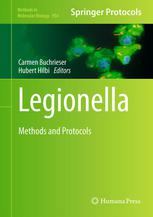

Most ebook files are in PDF format, so you can easily read them using various software such as Foxit Reader or directly on the Google Chrome browser.
Some ebook files are released by publishers in other formats such as .awz, .mobi, .epub, .fb2, etc. You may need to install specific software to read these formats on mobile/PC, such as Calibre.
Please read the tutorial at this link: https://ebookbell.com/faq
We offer FREE conversion to the popular formats you request; however, this may take some time. Therefore, right after payment, please email us, and we will try to provide the service as quickly as possible.
For some exceptional file formats or broken links (if any), please refrain from opening any disputes. Instead, email us first, and we will try to assist within a maximum of 6 hours.
EbookBell Team

4.8
74 reviewsLegionnaires’ disease is a severe form of pneumonia that can occur in epidemics of several hundred cases. This atypical pneumonia is characterized by a high mortality rate and affects primarily elderly and immuno-compromised individuals. An in-depth understanding of the ecology and virulence of Legionella spp. will contribute to an efficient and sustainable elimination of the bacteria from anthropogenic water systems and might lead to the development of novel therapeutics. The many different methods described in Legionella: Methods and Protocols are all specifically adapted and developed for the study of distinct features of L. pneumophila, and have already led to exciting discoveries. Most of these techniques can also be applied to the study of other bacterial pathogens, in particular intracellular pathogens like Shigella, Salmonella or Listeria. . Written in the successful Methods in Molecular Biology™ series format, chapters include introductions to their respective topics, lists of the necessary materials and reagents, step-by-step, readily reproducible protocols, and notes on troubleshooting and avoiding known pitfalls.
Authoritative and easily accessible, Legionella: Methods and Protocols will not only be useful for research groups studying Legionella, but also for a broader scientific community studying the epidemiology, typing, physiology, pathogenesis, immunity, genetics and evolution of other bacterial pathogens.